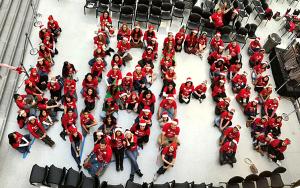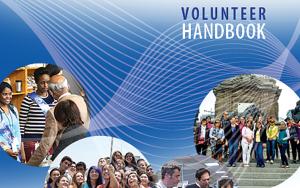Moving to a new country can be a daunting experience. Information you can gather through books and the internet, cannot replace first hand experience as shared below by WBFN members. If you are already in the Country Office and have some additional experience/tips you would like to share, please contact the WBFN Local Champion or the WBFN office and we will be glad to amend our members' recommendation for this specific country accordingly. WBFN is happy to share—but cannot endorse—information provided by members [consult WBFN Legal]. You have to be a registered WBFN member in order to access the information below; please log in/register
Special Announcement
-
Please register with WBFN by Clicking Here to become a new member, update current membership or create your website account. To access restricted content you must be a registered WBFN member with an active website account
-
50th Anniversary
-
50th Anniversary Monthly Webinars
- WBGFN – Past Present and Future
- WBGFN – Welcome and Support at HQ Part - 1
- WBGFN – Welcome and Support Part -2, Welcoming Worldwide
- WBGFN - Welcome and Support Part -3 Career
- WBGFN – Cultivating a Flourishing Family Abroad
- Nourishing Global Families Part 1 - Demystifying Raising Global Teens
- Nourishing Global Families Part 2: Education Advocacy For Children and Families Navigating a Global Lifestyle
- Nourishing Global Families Part 3: What does it mean to be a distance son or daughter?
- Competitions
- Men's Workshops Real Talk, Real Bonds
-
50th Anniversary Monthly Webinars
-
Get Involved
-
Support
- News & Views
-
Activities
- About
Members' Recommendations
Members Recommendations
- 1. When arriving
- 2. Housing & understanding your lease
- 3. Neighborhoods
- 4. Schools and daycares
- 5. Security
- 6. Healthcare providers & emergencies
- 7. Shopping
- 8. Recreational activities
- 9. Communities
- 10. Useful Resources/Books
- 1. When arriving
Family Network in the location
Jenny Hess (until end of April 2018)
No. 1 Jingyang Hutong, Dongcheng District, Beijing
Tel: 185-1984-0736 (Jenny cell)
Email: jenny.c.hess@outlook.comRebeka Sundin (from May 2018 on)
China World Apartments (but moving soon)
Tel. and WeChat: 176-0164-0455Maricy Vieira
2-1201 Central Park, Chaowai Avenue, Chaoyang, Beijing
Tel: 185-1978-7067 Scroll Up - 2. Housing & understanding your lease
- The WB changed the housing benefits since we arrived. Contracts for housing are no longer required, so my experience here is not relevant because we are still under the former housing benefits and are on a contract.
- We used an agent to find our accommodations. I have heard that some Bank employees were able to negotiate a better price without using an agent.
- Include a diplomatic clause in the lease. I would also include utilities, parking, air purifiers and filters, health club membership, and anything else you might want in the price.
- Air Purifiers, many staff buy air purification machines for their homes. Blue Air has a contract with the World Bank and offers discounts to employees. They will also send a representative to your home to help you decide the size and number of units required. You may be able to negotiate the purchase of air purification units in your rental contract. Note that filters need to be changed every six months. The World Bank building has air purification and there are additional air purification machines in individual offices. In recent years, private schools have installed air purifiers, including in large public spaces such as gyms and auditoriums.
Scroll Up - 3. Neighborhoods
Below is a list of places staff commonly choose to live:
- Beijing Riviera, Shunyi: This compound has luxury single-family homes and is near several international schools, however, it is quite a long way from the Central Business District (CBD) where the WB is located. The compound includes many amenities such as a health club, grocery store, tennis courts, and beauty salon.
- Central Park, CBD: This complex includes several tall apartment buildings with a commercial area on the ground floor that includes grocery stores, restaurants, beauty salons, and health clubs.
- Kerry Center, CBD: This facility includes service apartments as well as a hotel. Service apartments generally come furnished, but you can negotiate with the owner if you prefer to have your own furniture. Service apartments usually include weekly or twice-weekly cleaning provided by the facility. The Kerry Center has a health club and many commercial establishments on the ground and basement floors.
- Park Avenue, Chaoyang Park: This complex is located southeast of Chaoyang Park. It has both high-rise and low-rise apartments, a gym, supermarket, and cafes as well as traffic-free garden and playground.
- Courtyard houses (“Siheyuan” in Chinese), Central Beijing: Courtyards are traditional Chinese one-level houses. They are most often located within the second ring road. Courtyards often have a small private outdoor space. Although these are older homes, many have been renovated with modern facilities.
Scroll Up - 4. Schools and daycares
Many people hire nannies and housekeepers here (known as Ayi). Ayi are relatively inexpensive compared to prices in the US.
There are many international schools in Beijing. Here are a few that staff members’ children are enrolled in.
- Western Academy of Beijing (WAB), Chaoyang District: WAB is an international, private not-for-profit school with classes from nursery through grade 12.
- International School of Beijing, Shunyi District: ISB offers pre-K 3 through grade 12. It is the largest international school in Beijing.
- Yew Chung International School, Honglingjin Park, Chaoyang District: YCIS offers pre-K 2 through grade 12. School follows the National Curriculum for England and integrates Chinese language and culture.
- Ivy Education Group, several locations in Beijing: Ivy Education Group has several different schools in Beijing offering bilingual education. Campus locations include CBD, Sanlitun, Honglingjun Park, and elsewhere. School goes by several names including Ivy Academy, Ivy Bilingual School, and Daystar Academy. Different locations offer classes for different grade levels. Offers programs for ages 2 through grade 12 at different locations.
- Beijing City International School (BCIS), CBD: BCIS is an international not-for-profit school with classes from nursery school through grade 12. The school offers an international baccalaureate program for primary, middle, and high school. Students from nursery through grade 8 are required to learn Chinese in addition in English, which is the main instructional language.
Scroll Up - 5. Security
Beijing is incredibly safe. I suggest carrying your Chinese residency (diplomatic) card that you receive after you arrive with you at all times in case you are asked for ID (or at least have a photo of it on your phone). You do not need to carry your passport with you.
Scroll Up - 6. Healthcare providers & emergencies
- Beijing Vista Clinic is located near the World Bank in the Kerry Center and provides most non-emergency medical services. They have many staff that speak English.
1 Guanghua Rd
GuoMao, Chaoyang Qu
Beijing Shi 100001
China- Beijing United Family Hospital for emergency and more serious medical issues requiring a hospital.
2 Jiangtai Rd, Chaoyang Qu,
Beijing Shi 100096
China Scroll Up - 7. Shopping
- 7.1 Supermarkets
Groceries
Many people shop at stores that offer international products. Popular chains include Jenny Lou’s, Jenny Wang’s, and April Gourmet. Another popular market is Sanyuanli located north of Sanlitun. Sanyuanli is a market with multiple vendors. Produce and spices that are difficult to find elsewhere are often available here.
Water
Most people drink bottled water and have large 5-gallon bottles delivered to their home. There are many water vendors including Watson’s, Ganten, and Nestle. Most people cook with tap water and brush their teeth with it and many will drink tap water if it has been boiled first.
- 7.2 Furniture
Furniture
Lily’s Antiques in Gaobeidian is a popular location for buying new and antique furniture.
Lamps
George’s Lamps in Shunyi carries hand-crafted lamps.
Scroll Up - 8. Recreational activities
- 8.1 Restaurants
Restaurants in Beijing are ubiquitous. There are too many to make recommendations. The website www.timeoutbeijing.com has tons of information and recommendations on good restaurants around Beijing.
- 8.2 Nightlife
Culture
The Hutong offers cooking classes and many cultural events including talks, walking tours, and biking trips to Yunnan and Fujian: https://thehutong.com/
Beijing Postcards is dedicated to modern Chinese history with a focus on Beijing. They collect old maps and photos of Beijing from around the world and are also compiling an oral history from Beijing residents. They offer several talks and walking tours of Beijing, some of which are offered through The Hutong. http://www.bjpostcards.com/
Beijing By Foot offers many different walking tours of Beijing by Qing historian Jeremiah Jenne. Many tours are offered through The Hutong https://www.beijingbyfoot.com/
The Bookworm is a bookstore, lending library, restaurant, and event space in Sanlitun that hosts many different events weekly including book talks with authors, interviews with journalists, film festivals, music, comedy, and the like. One unique series they run is the Sunday Salon. The music editor for Time Out Magazine organizes and hosts this monthly event, which features professional Chinese musicians with the host interviewing the musicians to gain insight into their lives, music, and inspiration http://beijingbookworm.com/Tickets
Purchasing tickets in Chinese for movies and other entertainment can be a challenge. The website https://www.247tickets.com/ is in English and includes tickets to movies as well as other entertainment in Beijing such as dance, musicals, music, circuses and other shows. Make sure you select the city in the upper left-hand corner because it often defaults to Shanghai.
- 8.3 Weekend getaways
Travel
You can book train tickets online by yourself. The problem is that you need to pick up the tickets at the train station and must have passports for all travelers when picking up tickets. Lines for picking up tickets can be very long. This is also very problematic when buying tickets for guests that are coming from outside China. American Express at the World Bank is very helpful with buying train tickets. They can buy and pick up the tickets using passport information rather than the actual passport. The convenience of having them get your tickets is definitely worth the extra fee they charge. You can buy airline tickets online (ctrip is a good site for domestic flights and flights within Asia) without any problem.
Here are two travel agents Jenny and Todd have used several times when guests come and want to visit either Xi’an or Guilin and we are unable to accompany them.
For Xi’an, contact Jessica at jessica@chinaxiantour.com. She can arrange a guide, driver, and suggest an itinerary given your length of stay.
For Guilin (including Yangshuo and Longji Rice Terraces), contact Jane at insider.yangshuo@gmail.com. She can arrange a guide, driver, and suggest an itinerary.
Scroll Up - 9. Communities
There is the International Newcomers Network in Beijing (innbeijing@hotmail.com).
Scroll Up - 10. Useful Resources/Books
Here are just a few:
- Lonely Planet China Guidebook
- The Age of Ambition by Evan Osnos
- The People’s Republic of Amnesia by Louisa Lim
- Wealth and Power: China’s Long March to the 21st Century by John Delury and Orville Schell
Scroll Up






